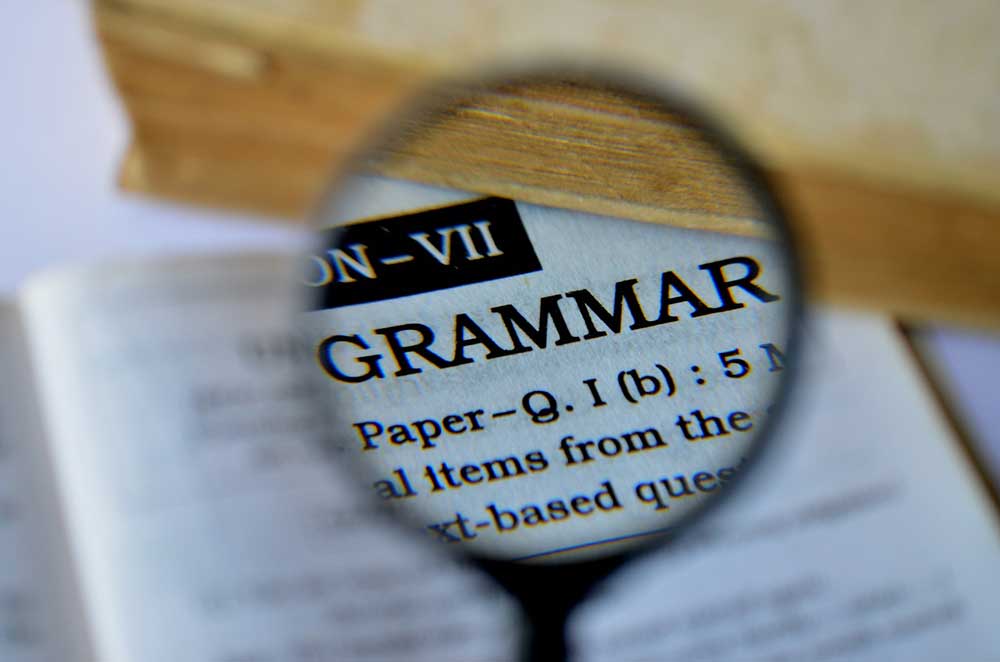 In today’s digital world, written communication is instant and informal. Whether via text or email, poor grammar has never been more acceptable. We all use slang, abbreviations, and even emojis to communicate our message, in both our personal and work lives.
In today’s digital world, written communication is instant and informal. Whether via text or email, poor grammar has never been more acceptable. We all use slang, abbreviations, and even emojis to communicate our message, in both our personal and work lives.
The question, then, is this: is grammar important? Or, is it an out-dated system of seemingly nonsensical rules that will eventually become a relic of times past?
It’s not uncommon for words to retire. Terms like ‘appetency’ (a desire or longing), ‘equipage’ (gear or equipment) and ‘laud’ (praise) have all hung up their hats and quietly exited our everyday vernacular. Could long-standing grammatical rules be next?
In our opinion, grammar is critical. Let’s examine this topic in a little more detail.
What kind of grammar user are you?
When it comes to grammar, there are typically three kinds of people: the purists, the rule-breakers, and the disinterested non-believers.
Purists follow the rules
Purists know and follow grammatical rules – perhaps even to a fault. They believe that rules are in place for a reason, and any text that breaks these rules is simply incorrect. Some of the more radical purists may come across as snobbish, but they can be an extremely useful resource when you’re not sure if you should use ‘whom’ or ‘who’, for example.
Rule-breakers are concerned with how people use language
For the rule-breaker, everyday usage is the authority. They know the rules, but they are not willing to get hung up on the technical. Grammar is a tool for the people, and if the people can break tradition and still get their message across, that’s all that matters.
Disinterested non-believers don’t know and, frankly, don’t care
For one reason or another, the disinterested non-believer either doesn’t know or can’t recall the rules of grammar. They have no intention of changing, either. They don’t believe that grammar has any significant impact on their written communications and may be blissfully unaware of just how hard grammar is working behind the scenes to make the world comprehensible.
Is grammar important?
Grammar is important for many reasons, but let’s focus on just two.
Grammar is your brand ambassador
Whichever camp you fall into, we can all agree on one thing: accurate communication is an essential part of life. This rings especially true in the business world.
If you’re a disinterested non-believer running a business, your partners, employees, and potential customers may be rule-breakers – or worse yet, purists. If they spot grammatical errors, they could jump to any number of conclusions: those running the business are unprofessional, sloppy and careless in their communications, and, to put it bluntly, not very clever.
Of course, none of this is necessarily true. But it demonstrates grammar’s role as a brand ambassador. To the disinterested non-believer, perfect grammar may be invisible. But to everyone else, it’s a sign of professionalism, credibility, and expertise.
Incorrect grammar sends the wrong message
Grammar is your brand ambassador, and how you use it speaks volumes about your business’s professionalism. Incorrect grammar can also have an immediate and tangible impact on your communications.
We’ve all seen the ‘Let’s eat Grandma’ meme by now. It’s a great example of just how confusing a message can become when grammar is not used correctly. Without that vital comma, we’ve gone from enjoying a tasty meal with our beloved grandma to committing a heinous crime.
Grammar is important – make sure yours is perfect
Whether you personally believe in the importance of grammar or not, it is critical that corporate publications released by your business are proofread and edited by an expert. Find out more about our corporate publications service today.

